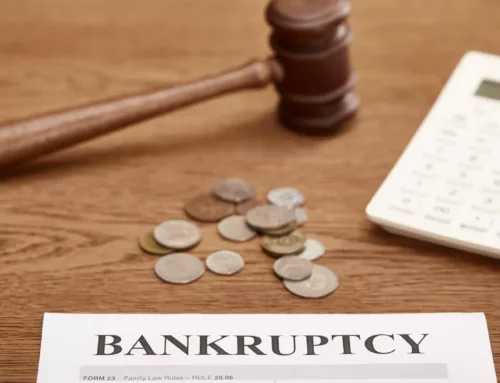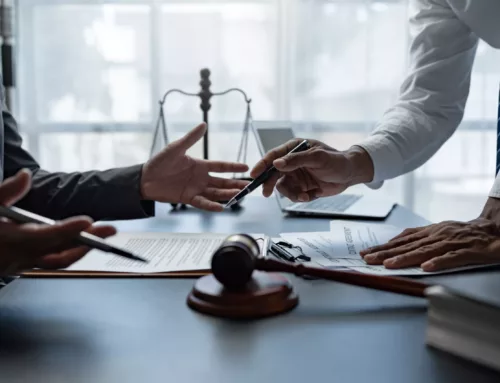A bankruptcy filing is beneficial for an individual who is no longer capable of paying his or her debts. There are different types of debt that one can owe a creditor. Such could either be an unsecured debt or, in contrast, a secured debt. Filing bankruptcy will enable you to obtain a bankruptcy discharge for most unsecured debts. This includes medical bills and credit card bills, among others. (Note, however, that even if child support, alimony, and certain tax debt are not secured debts, they also cannot be wiped out even if you file for bankruptcy).
If you are considering filing for bankruptcy, consult a bankruptcy attorney to help you decide on the best option for you. After deciding on the bankruptcy case most suited for you, he or she can also assist in preparing bankruptcy forms.
One of the main reasons why individuals declare bankruptcy is because of the bankruptcy stay. Once the bankruptcy court has approved your bankruptcy petition, an automatic stay shall be effective immediately. This will protect you from creditor harassment, stop foreclosure, and prevent wage garnishment.
Hiring a bankruptcy lawyer is recommended for you to understand the basics of bankruptcy law. This will help you avoid legal issues during the bankruptcy proceeding.
There are different types of bankruptcy. The two most commonly used, however, are Chapter 7 and Chapter 13 bankruptcies.
Filing bankruptcy under Chapter 7 helps you repay what is owed when you liquidate your nonexempt assets. In contrast, through a Bankruptcy Chapter 13, you will submit a repayment plan that will let you pay back debts without surrendering your home or any of your properties. Your eligibility in filing bankruptcy will depend on your monthly income (specifically your disposable income) and living expenses. This means you must first pass the bankruptcy means test if you want to qualify for declaring bankruptcy.

As a bankruptcy trustee fulfills his or her responsibilities, the principles behind the Bankruptcy and Insolvency Act come into play. Among these is fairness. The trustee ensures that the bankruptcy procedure is fair for both parties. They are federal court officers that mainly stand between debtors and creditors and facilitate a proceeding wherein the rights and obligations of both parties are taken care of. Trustees work for both parties, as independent administrators with set roles and responsibilities.
Before you file bankruptcy, it might be helpful to know that the trustee performs an initial evaluation of the case from the point of view of the debtor. Trustees personally meet the debtor, review the situation, evaluate and clarify all potential remedies and respond to any concerns. They also must educate individuals regarding the long term effects of the chosen bankruptcy procedure.
If you have decided to declare bankruptcy, your trustee will work on specific paperwork and respond to any concerns you may have for them. Signing these papers will begin the official bankruptcy process.
When filing for bankruptcy, trustees are responsible for notifying all creditors concerned. They also take care of supplying the documentation needed to substantiate the filing to any interested party. For example, if you have experienced garnishment, they will be responsible for providing the necessary paperwork to the employer to stop wage garnishment.
From the point of view of the creditors, the bankruptcy trustee will take care of informing them of any filings, responding to their questions, and accepting claims against the debtor. They will be the ones to arrange the meetings of creditors, where parties are called to review bankruptcy filings.
The trustee is also responsible for equally distributing any funds earned, collecting appraisals, and selling assets to recover funds to be allocated to the creditors. They also have to monitor the debtor’s duties and ensuring that they engage in the appropriate financial counseling to help in their recovery. They also ensure that individuals who have submitted a bankruptcy petition engage in credit counseling, with hopes of being able to learn from such.
Trustees are also the ones who facilitate the bankruptcy discharge after the bankruptcy proceeding. This is the court order that will eliminate or wipe out certain debts.
If you decide to file a petition in bankruptcy, a lot is happening in the background. It can be frustrating to know that so many complicated bankruptcy rules regulate these proceedings. While there are several things that you would not have to do yourself, it is helpful to have someone explain to you any state law that is relevant to bankruptcy cases.
If you are struggling with debt and financial problems, it is highly advisable to seek legal assistance from an experienced bankruptcy lawyer. At HS&A, P.C. Law, we make sure that you get legal help from a professional who will help you deal with debt problems, rebuild a fresh start, and secure your financial future. Call our bankruptcy law firm at 248-600-4536 for a free consultation.



